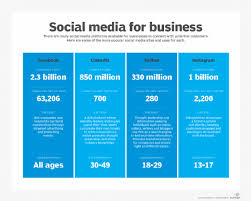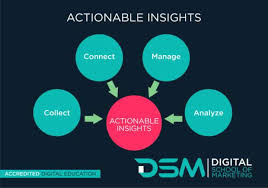Unlocking Success: Leveraging Social Media Metrics for Strategic Growth
The Importance of Social Media Metrics
Social media has become an integral part of modern marketing strategies for businesses. It offers a powerful platform to connect with audiences, build brand awareness, and drive engagement. However, to truly understand the impact of your social media efforts, it is essential to track and analyse relevant metrics.
Social media metrics are key performance indicators that provide valuable insights into the effectiveness of your social media campaigns. By monitoring these metrics, businesses can evaluate their performance, identify areas for improvement, and make data-driven decisions to optimise their social media strategy.
Types of Social Media Metrics
There are various types of social media metrics that businesses can track to measure their performance:
- Engagement Metrics: These include likes, comments, shares, and retweets. Engagement metrics indicate how well your content resonates with your audience.
- Reach Metrics: Reach metrics measure the number of people who have seen your content. This includes metrics such as impressions and reach.
- Conversion Metrics: Conversion metrics track actions taken by users as a result of your social media efforts. This includes clicks, sign-ups, purchases, etc.
- Follower Growth: Follower growth metrics show how quickly your social media following is expanding over time.
The Benefits of Tracking Social Media Metrics
Tracking social media metrics offers several benefits for businesses:
- Performance Evaluation: Metrics provide a clear picture of how well your social media campaigns are performing and where improvements can be made.
- Data-Driven Decisions: By analysing metrics, businesses can make informed decisions about their content strategy, posting schedule, ad targeting, etc.
- ROI Measurement: Metrics help in measuring the return on investment (ROI) of social media activities and determining the effectiveness of marketing spend.
- Competitive Analysis: Monitoring metrics allows businesses to benchmark their performance against competitors and identify opportunities for growth.
In Conclusion
Social media metrics play a crucial role in helping businesses understand the impact of their social media efforts and make informed decisions to drive success. By tracking relevant metrics and analysing data regularly, businesses can optimise their social media strategy for better engagement, reach, and conversions.
Essential Tips for Effectively Measuring Social Media Success
- Set clear goals and objectives for your social media metrics.
- Focus on relevant metrics that align with your goals, such as engagement rate and conversion rate.
- Track key performance indicators (KPIs) regularly to measure the success of your social media efforts.
- Analyse the data to gain insights into what is working well and what needs improvement.
- Monitor trends over time to understand patterns in user behaviour and adjust your strategy accordingly.
- Compare your performance against industry benchmarks to gauge your competitiveness.
- Use tools and analytics platforms to streamline the process of tracking and analysing social media metrics.
Set clear goals and objectives for your social media metrics.
Setting clear goals and objectives for your social media metrics is crucial for a successful social media strategy. By defining specific and measurable goals, such as increasing engagement, growing brand awareness, or driving website traffic, businesses can align their social media efforts with their overall objectives. Clear goals provide direction and focus, guiding the selection of relevant metrics to track progress and evaluate success. Setting concrete goals also helps in determining the effectiveness of social media campaigns and making informed decisions to optimise performance. Ultimately, establishing clear goals and objectives for social media metrics is essential for driving meaningful results and achieving business success in the digital landscape.
Focus on relevant metrics that align with your goals, such as engagement rate and conversion rate.
When it comes to tracking social media metrics, it is crucial to focus on relevant indicators that align with your specific goals. Metrics like engagement rate, which measures the level of interaction with your content, and conversion rate, which tracks the percentage of users who take a desired action, are key in assessing the effectiveness of your social media strategy. By prioritising these metrics that directly tie back to your objectives, you can gain valuable insights into how well your efforts are performing and make informed decisions to enhance your overall social media performance.
Track key performance indicators (KPIs) regularly to measure the success of your social media efforts.
Tracking key performance indicators (KPIs) regularly is essential to measure the success of your social media efforts. By monitoring metrics such as engagement rates, reach, conversions, and follower growth on a consistent basis, businesses can gain valuable insights into the effectiveness of their social media campaigns. This data-driven approach allows companies to identify trends, evaluate performance against set goals, and make informed decisions to optimise their social media strategy for better results. Regularly tracking KPIs ensures that businesses stay agile and responsive in adapting their tactics to achieve their desired outcomes in the dynamic world of social media marketing.
Analyse the data to gain insights into what is working well and what needs improvement.
Analysing the data from social media metrics is essential to gaining valuable insights into the effectiveness of your strategies. By carefully examining the metrics, businesses can identify what is working well and where there is room for improvement. This analysis enables companies to make informed decisions on refining their content, engagement tactics, and overall social media approach to maximise success. Through data-driven insights, businesses can adapt and evolve their strategies to better resonate with their audience and achieve their communication goals efficiently.
Monitor trends over time to understand patterns in user behaviour and adjust your strategy accordingly.
Monitoring trends over time is a valuable tip when it comes to social media metrics. By observing patterns in user behaviour, businesses can gain insights into what resonates with their audience and what doesn’t. This allows for the adjustment of social media strategies to better align with the preferences and interests of users. By tracking metrics consistently and analysing trends, businesses can adapt their content, posting schedules, and engagement tactics to maximise effectiveness and drive better results on social media platforms.
Compare your performance against industry benchmarks to gauge your competitiveness.
To effectively gauge the competitiveness of your social media efforts, it is crucial to compare your performance against industry benchmarks. By analysing how your metrics stack up against industry standards, you can gain valuable insights into areas where you excel and where improvements are needed. This comparison not only helps you understand your position within the industry but also allows you to identify opportunities for growth and development. Utilising industry benchmarks as a reference point enables you to set realistic goals, track progress effectively, and stay ahead of the competition in the dynamic world of social media marketing.
Use tools and analytics platforms to streamline the process of tracking and analysing social media metrics.
To effectively track and analyse social media metrics, it is highly recommended to utilise tools and analytics platforms. These resources can streamline the process, providing businesses with valuable insights into their social media performance. By leveraging tools such as Hootsuite, Sprout Social, or Google Analytics, businesses can automate data collection, generate comprehensive reports, and gain a deeper understanding of their audience engagement and campaign effectiveness. These tools not only save time but also enable businesses to make data-driven decisions that enhance their social media strategy for optimal results.




